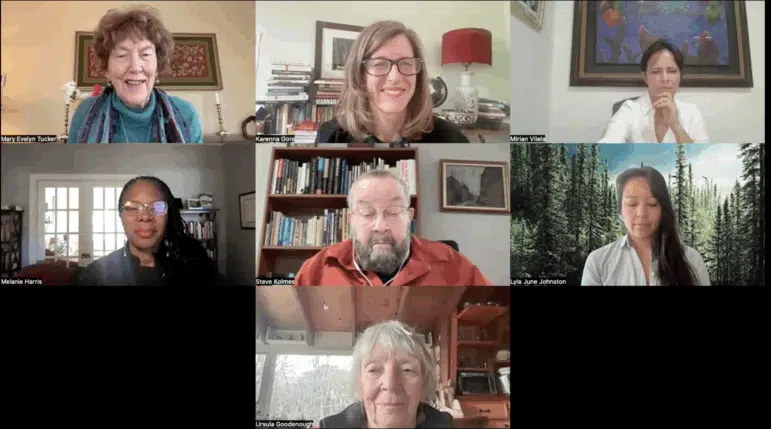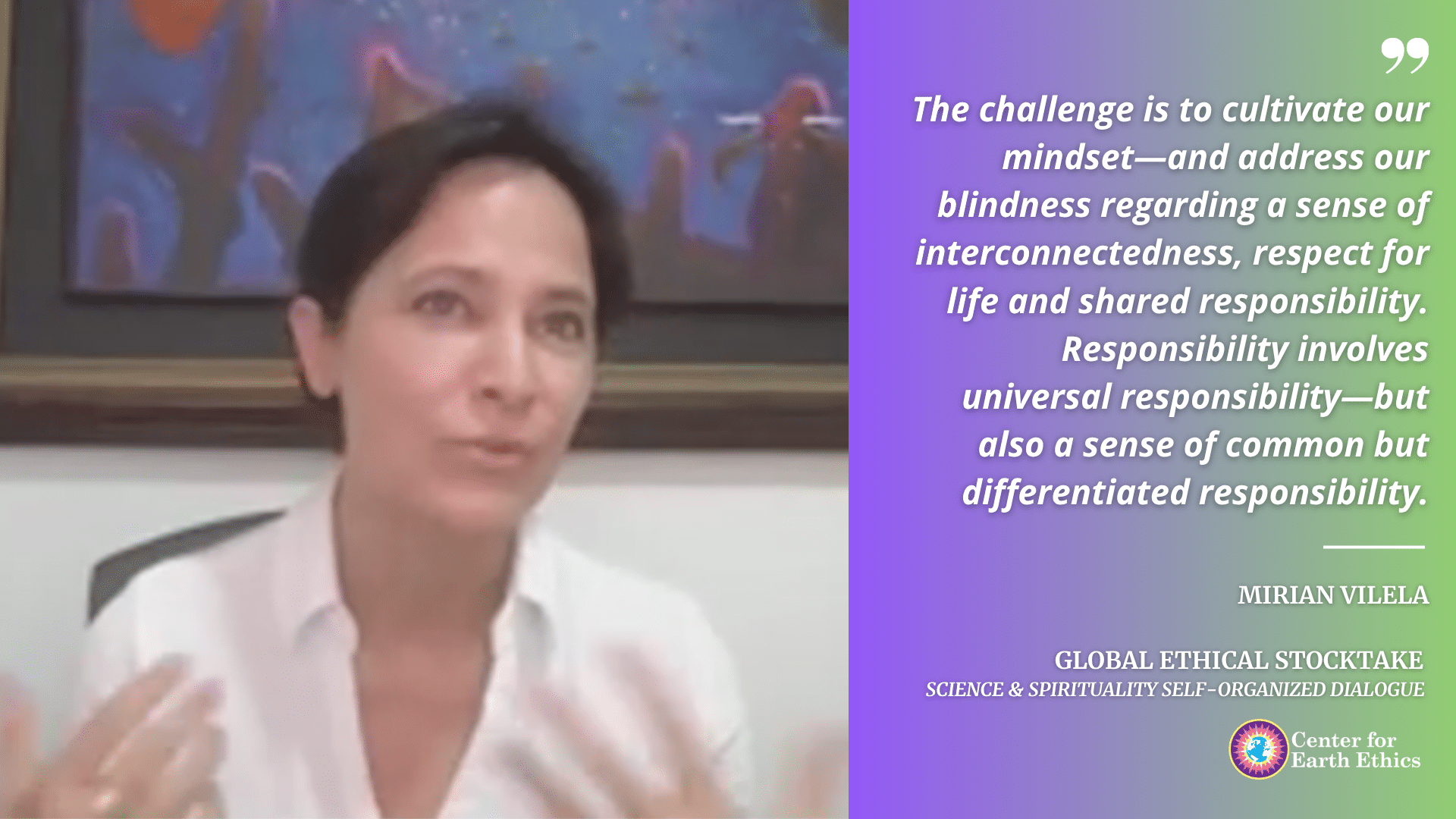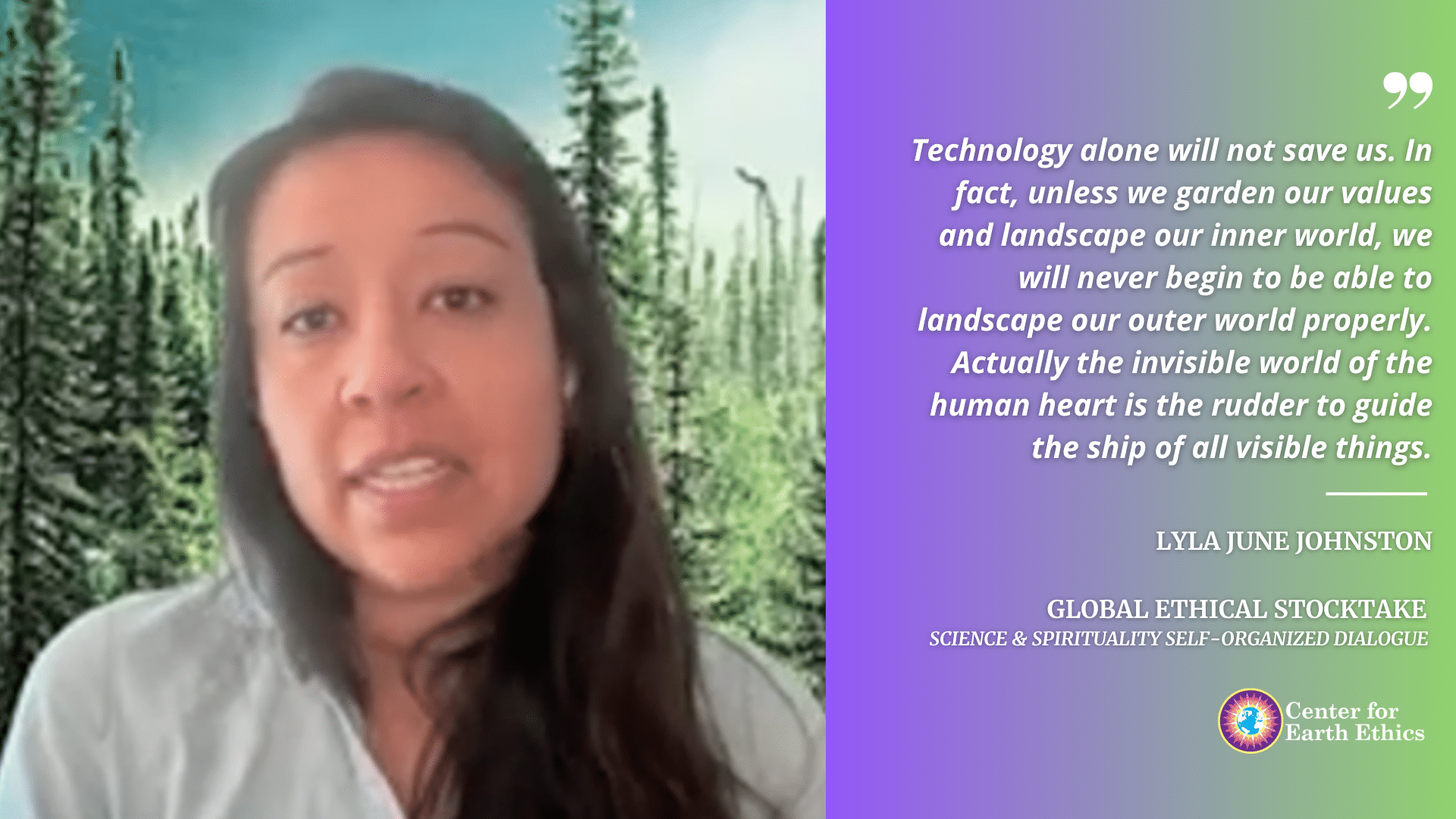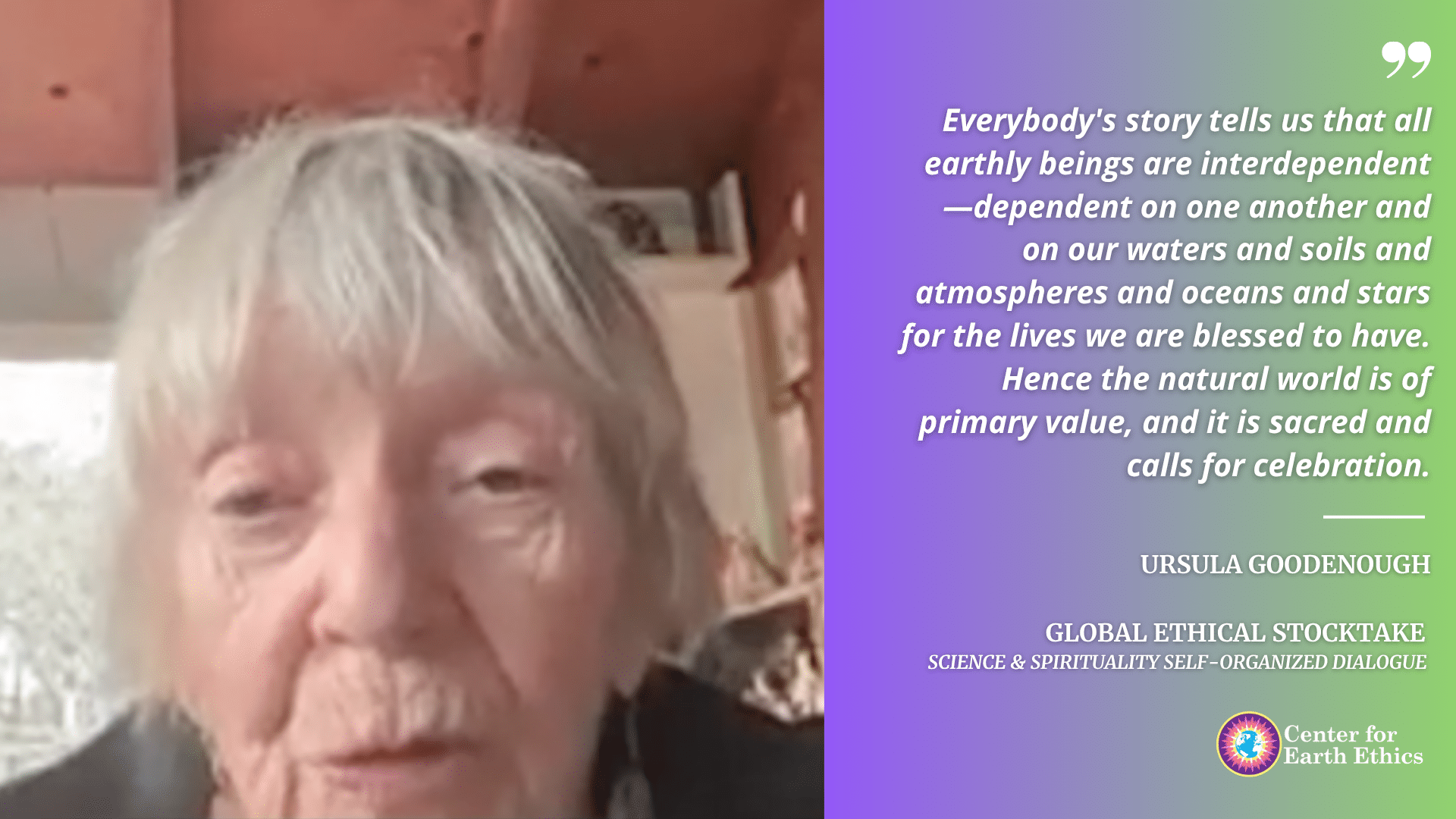
“Deeping the Moral Force”: Science and Spiritual Leaders Convene Global Ethical Stocktake Dialogue
“The moral compass and the ethical will for change remain elusive—yet on the horizon, because people realize something is missing. We have to deepen the moral force. The spiritual, the moral, the ethical need to be infused with the policy, science and law that are driving climate responses.”
Dr. Mary Evelyn Tucker, co-founder of Yale Forum on Religion and Ecology, opened a powerful online forum hosted by Center for Earth Ethics and the Yale Forum. Held on November 5, “Science and Spirituality: An Ethical Stocktake Dialogue to Inspire COP30,” was a Global Ethical Stocktake Self-Organized Dialogue—a series of grassroots conversations for communities to share perspectives on climate ethics from their lived experiences.
Moderated by Tucker, with opening and closing remarks from CEE Executive Director Karenna Gore, the Dialogue featured Dr. Lyla June Johnston, Dr. Ursula Goodenough, Dr. Melanie Harris, Dr. Mirian Vilela and Dr. Steve Kolmes.
Tucker grounded the dialogue by emphasizing that both science and religion are essential, quoting Albert Einstein: “Science without religion is lame; religion without science is blind.” This idea became a central theme of the discussion, with all the speakers highlighting that we need more than scientific facts to address the climate crisis—we also need values and ethics to inspire human action.
Gore expanded by reiterating a central guiding question of the Global Ethical Stocktake: “If we know what must be done to address the climate crisis, why are we not doing it?” Panelists responded by positing a value shift whose real-world implications couldn’t be more pressing.
Panelists identified key barriers to action. Kolmes, editor of “Environment: Science and Policy for Sustainable Development” and professor emeritus of environmental studies at University of Portland, pointed to “very powerful vested interests that want to resist movement in a direction that would promote overall human well-being, like protection of the vulnerable or common access to necessary resources or environmental justice.”
Unless we garden our values and landscape our inner world, we will never begin to landscape our outer world properly.
Dr. Lyla June Johnston
This external pressure is interlinked with a value system misaligned with planetary health. Vilela, executive director of Earth Charter International Secretariat, drew on insights from hundreds of GES Self-Organized Dialogues seeded by Earth Charter. Many of these dialogues highlighted a pervasive cultural and ethical “blindness” that undermines a lived experience of interconnectedness. “The challenge,” she said, “is to cultivate our mindset and address our blindness regarding a sense of interconnectedness, respect for life and shared responsibility.”
Johnston, a musician, scholar and community organizer of Diné (Navajo), Tsétsêhéstâhese (Cheyenne) and European lineages, pointed to a 3,000-year-old Indigenous clam garden as evidence of another value system—one that allows humans to cultivate the Earth for millenia without degrading it. “Unless we garden our values and landscape our inner world,” she said, “we will never begin to landscape our outer world properly. The invisible world of the human heart is the rudder to guide the ship of all visible things.”
The creation of a listening ear is a first step towards reflecting on the experience of interconnectedness—noticing that the Earth is sacred, honoring the wisdom and climate solutions that emerge from Indigenous, Black and communities of color globally
Dr. Melanie Harris
The dialogue highlighted that both spiritual and scientific ways of knowing offer pathways back to a felt sense of interconnectedness. Goodenough, professor emerita of biology at Washington University in St. Louis, invited participants into a mystical encounter with “science-based understandings of the natural world—the Big Bang, stars, planet Earth, the origin and evolution of life.” This “big story…tells us that all earthly beings are interdependent—dependent on one another and on our waters and soils and atmospheres and oceans and stars for the lives we are blessed to have.”
Harris, professor of Black feminist thought and womanist theology at Wake Forest School of Divinity, introduced an eco-womanist perspective, emphasizing that “the creation of a listening ear is a first step towards reflecting on the experience of interconnectedness—noticing that the Earth is sacred, honoring the wisdom and climate solutions that emerge from Indigenous, Black and communities of color globally.” This approach centers a relational ethic, where justice for the Earth and justice for the most vulnerable are inextricably linked—a central theme in various GES dialogues.
Gore concluded by summarizing the event: “It’s not the Earth that needs fixing—it’s human societies.” In response, the official and grassroots dialogues of the Global Ethical Stocktake become “a kind of prayer for the world to commit to protecting life.”
Insights from the Dialogue were featured in the Center’s Voices from the Global Ethical Stocktake initiative.






